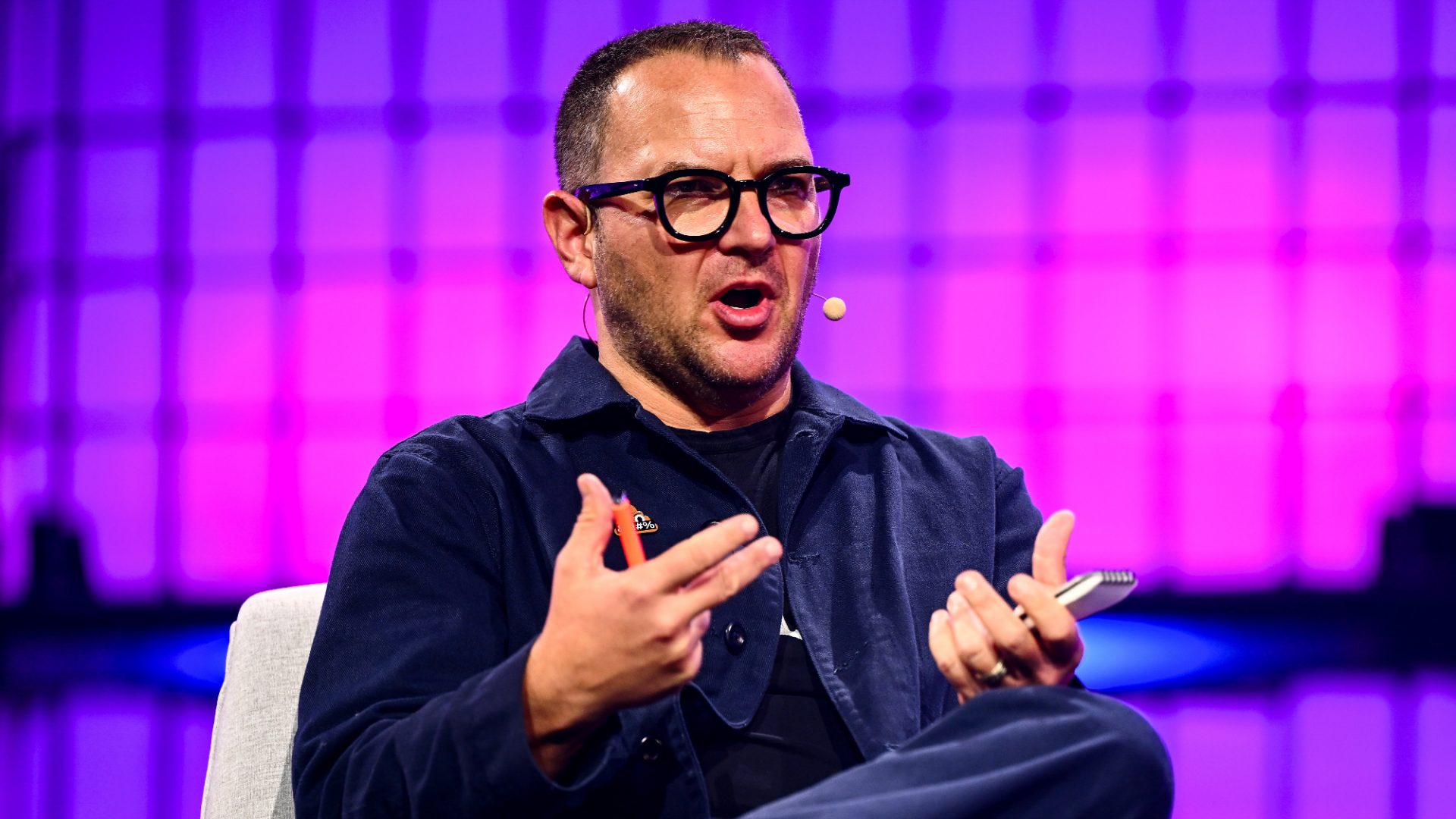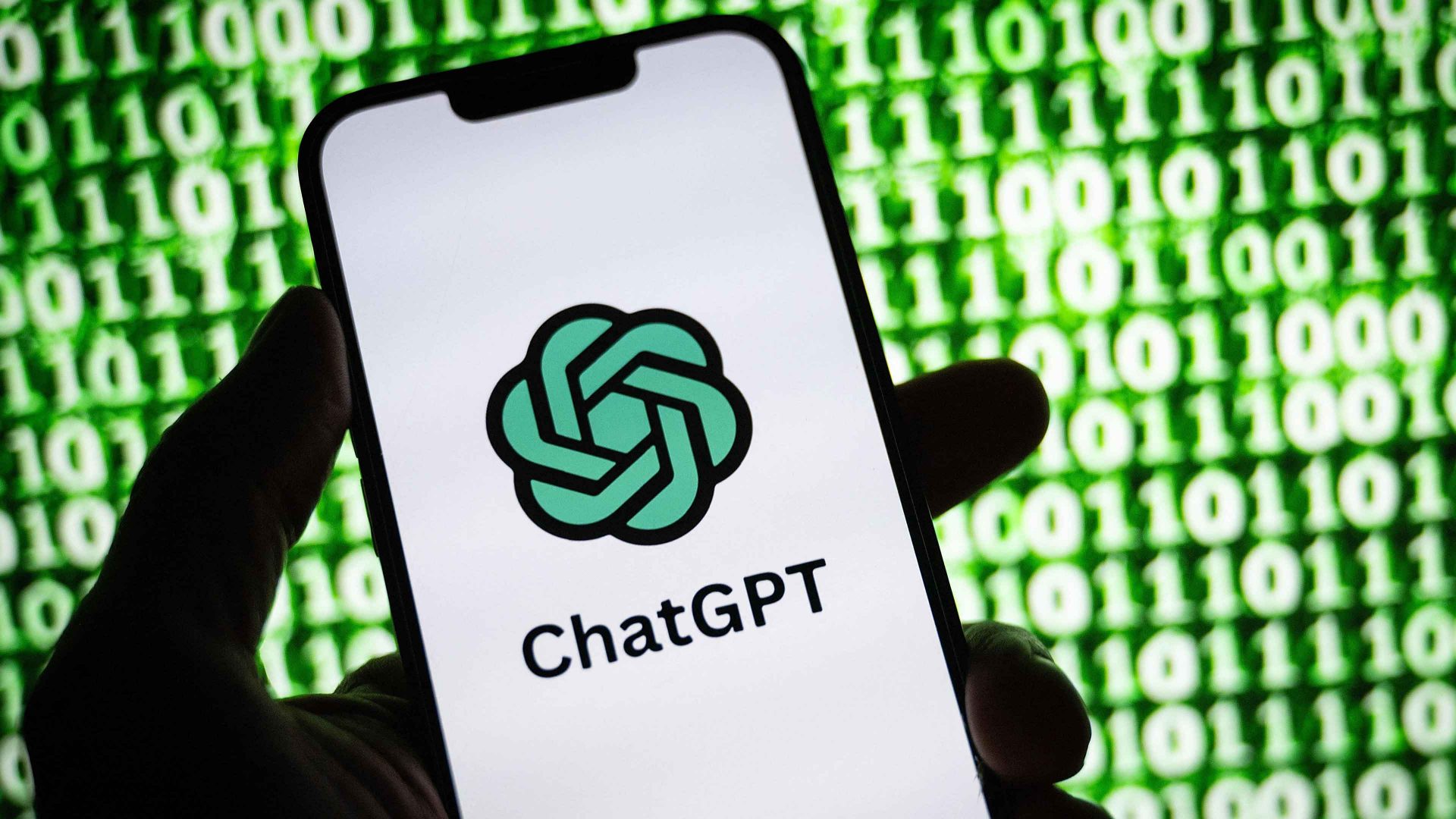Is artificial intelligence a game-changer that will free humans from drudgery and set the world on a radically different course? Or is it “a collection of moderately useful tools being billed as a supernatural being”?
Most people at Web Summit, Europe’s largest technology conference, would assure you of the former. But the writer Cory Doctorow is not most people.
Every November at Web Summit, 70,000 attendees pack into huge sheds on the outskirts of Lisbon to hear talks on what’s next in tech, from celebrities – Maria Sharapova and Joseph Gordon-Levitt graced the main stage this year – to startups looking to attract the attention of investors. This is a place for everyone who promises they’ve discovered the next big thing.
It is not necessarily where you expect to meet Doctorow, arch-critic of the tech industry, and the creator of the term “enshittification”, which now doubles up as the title of his latest book.
On the edge of a VIP area in which speakers are fed oysters on dry ice, hand-cut charcuterie and more, the two of us have been shoved into a windowless interview cubicle, in which Doctorow is battling jet lag after a flight heavily delayed by Donald Trump’s government shutdown. Soon, we are talking about his deep scepticism of AI.
Doctorow coined the term “enshittification” in November 2022, and it soon caught the popular imagination as a pleasing descriptor of how the online world is getting worse. He is relaxed about people using the term however they like, but stresses it has a more specific meaning – he’s describing a very particular habit of tech companies by which users are drawn to a new service because it’s better quality or cheaper (or both) than what’s already there.
Users join in their millions, then billions, and then… the service gets much worse, or much more expensive, than whatever went before, but now those alternatives are gone. Everything is shitty now, and you’re trapped.
Google was better than any search engine, and showed fewer ads. Now we’re stuck using it even though its results get worse every year. Uber was more convenient and cheaper than taxis – because investors’ money subsidised fares – but now fares have rocketed, as the number of drivers shrinks.
The same carries across Apple, Amazon, and almost all venture capital-backed tech industries, Doctorow argues: companies have a great product until they build up monopoly power, then they steadily make it worse as they cash in on their market position. That’s enshittification.
So, as artificial intelligence soaks up hundreds of billions in investment even as AI-generated content takes over the internet, becomes the bane of schoolteachers’ lives, and perhaps even threatens all of our jobs, surely Doctorow must see more of the same – is this not the same shit on an astronomical new scale? Not really, he says.
“I think the difference is that with enshittification – when we talk about something like Amazon or Google – it’s talking about something that’s real, and AI is fake,” he explains. “AI is a collection of moderately useful tools being billed as a supernatural being, something being created before us by shovelling extra words into the word-guessing programme until it wakes up and turns us into paper clips.”
To put it another way, what’s going on with AI can’t be quite the same phenomenon as enshittification because we seem to be skipping past the bit where we get a product that’s obviously a better or cheaper replacement than something that already exists.
That’s not the same as saying modern AIs are totally bogus – Doctorow concedes there is an interesting new technology there, but thinks its capabilities are being dramatically overblown, and that this hype is likely to be weaponised against us as citizens and workers.
But he starts by suggesting it shows the shallowness of many of the people running technology, and the way we can all be exploited by the illusion of depth – not least through AI-generated art. The value of regular art, he suggests, is in imagining what’s behind each brush stroke, or pencil line, or whatever other mark is made.
“Art is about communicating something from the creator to the audience,” says Doctorow. “That’s what art is, taking a big, numinous, irreducible, complex thing, infusing it in an intermediary medium and hoping it materialises a facsimile in someone else’s mind.
“But all the chatbot knows is what you’ve told it. And so when you give it three sentences and it expands it into a million pixels, the amount of communication in any section of this you examine is zero.”
In other words, with large language models we have found a way to make a picture worth only 20 words instead of 1,000 – the outputted picture means nothing more than the handful of words we feed into it as a prompt.
Doctorow thinks part of the reason for the massive hype of AI is that tech companies have desperately needed a growth story for years now – they looked for it with crypto, then with the metaverse, and now AI is that story.
Suggested Reading


Naomi Alderman: ‘The right side is not largely defined by your opinions’
The stock market valuations of Apple, Alphabet (Google), Meta (Facebook) and Microsoft are based on the idea that even though they are huge monopoly-like companies, they will still grow much larger. If investors stop believing that, they will still be profitable businesses, but they will be worth much less.
That’s bad for the compensation packages of the executives, but it’s also bad for the companies – if a company like Apple or Amazon wants to buy up a would-be rival for billions of dollars, they can do it in stock, where another bidder would have to find the actual cash. Big tech’s huge valuation turns into real-world power.
AI, Doctorow says, gives it that growth story – provided investors believe it is real, and spending hundreds of billions of dollars certainly makes it look real. “I call it the ‘pile of shit’ thesis,” he says. “Because a pile of shit this big has to have a pony under it somewhere, right?”
Less colourfully, investors assume the people running big tech are smart – and people as smart as they are wouldn’t be spending hundreds of billions on a new product unless they were pretty sure it was going to be groundbreaking… right? Right?
That obviously means Doctorow worries that a crash might be inevitable, but he’s also more concerned about the immediate effects of the AI boom on the rest of us – not least on our jobs.
“The AI can’t do your job, but an AI salesman can try to convince your boss to fire you and replace you with AI,” he says. “The AI that can’t do your job is pushing on an open door because bosses are insatiably horny for firing workers and replacing them with automation that won’t mouth off to them, or try to unionise, or need the toilet.”
A company might replace thousands of its call-centre workers with an AI, perhaps on the cynical basis that customer service workers aren’t there to deliver great service, but to make it difficult for customers to get refunds. An AI might be able to do that version of the job, or it might not. But even if it fails, that almost doesn’t matter to a boss looking to cut costs – especially if customers get used to that new, worse level of service.
Doctorow couples this with a leftfield take on the much-covered phenomenon of “AI psychosis”, in which regular users of chatbots think the AI is sentient, or get into long and damaging conversations with it, or seem to have worsening mental health as a result of their AI interactions.
This, he thinks, is a parallel with what happens to billionaires. The designers of AIs have discovered that users like the chatbots best when they agree with us, hype us up, and are outright sycophantic – like the coterie of advisers that come to surround every billionaire, leading them to become increasingly weird even as they get ever-more convinced of their own infallibility. Chatbots give the rest of us our very own sycophantic bubble in which to exist.
“The true AI psychosis is billionaires investing in AI because they hate people and they don’t want anyone to ever tell them no,” he says. “And the way that AI psychosis trickles down is that each of us gets to live in an Elon Musk bubble where everyone who disagrees with you is an NPC [a non-playing character in a video game who drifts along without agency]. Literally, an NPC.”
Doctorow has spent the last few years chronicling the phenomenon he’s called enshittification, but while that’s been going on – and continues to go on – a huge new wave of AI, tech bro transformation has hit the world. The obvious question becomes what we should do about it all.
What is happening in the world of tech both can’t and shouldn’t be separated from what is happening in politics, Doctorow says – there is a rise of fascism and fascist-like movements around the world, and an oligarch class who seem keen to fan those flames. The resemblance to the 1930s is not a coincidence, he suggests.
In that decade, America and the UK saw off the threat of fascism with sweeping reforms like antitrust and workers’ rights – the New Deal in America in particular. Other countries became totalitarian. There are no guarantees which countries will fall which way this time, he suggests, but the package of policies we need looks similar in his view.
“History doesn’t repeat, but it rhymes. And the last time around, in the 30s, many countries went fascist, but America elected FDR and got the New Deal… FDR was not a political radical. He was just propelled by political winds.”
Doctorow believes there is a similar global demand for regulatory action against big tech across the world – the election of Trump might have stalled it, but the EU voted in tough new measures, the US had senior bosses in agencies trying to reckon with big tech, and nations like Brazil were squaring off with big tech. The public wants to take on the oligarchs – and doing so, he suggests, might be essential to protecting our democracies.
That’s as true for white-collar workers and the creative classes as everyone else, he suggests. Battles between Sony and big tech, or the New York Times and OpenAI over copyright aren’t where it’s really at, he suggests. It will come down to regulation and to workers’ rights.
“If as a creative class, we want to use our power, let’s make it a labour law,” the author concludes. “Because if we ask for a new copyright, our bosses would be right there with us. If we ask for a new labour law, every other worker in the economy will be – and our bosses won’t.”
It’s a good note on which to end our conversation and re-emerge into the VIP area of Web Summit – but before I do, Doctorow offers me one of the pin badges he’s had made to promote the book. It’s a cheery lump of shit, covered with the symbols to signify a rude word. I stick it to my jacket before I step back out among the elite.
Cory Doctorow’s book, Enshittification: Why Everything Suddenly Got Worse and What To Do About It, is published by Verso




